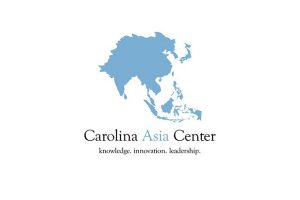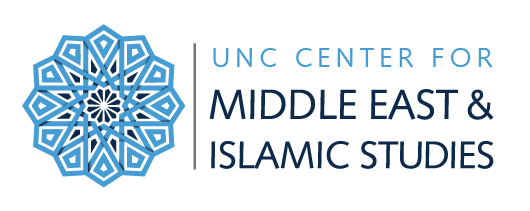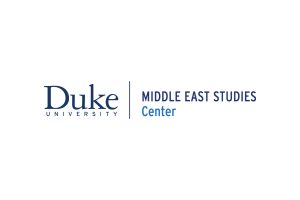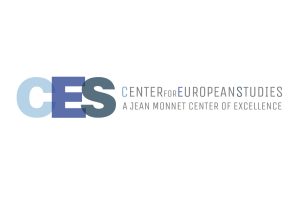2020 Community College Program

Global Health continues to be of particular importance today because health problems have significant political and economic impacts and can transcend national borders. The circumstances around the novel coronavirus (COVID-19) have been fast evolving, forcing community colleges and other institutions of higher learning to re-imagine their teaching and learning. This UNC World View virtual community college program will explore topics and teaching strategies that can address the evolving nature of global health. Educators will learn about global health resources and build a network of colleagues who are passionate about global health. This program is designed for community college educators of all disciplines and will be of particular significance for those in the health sciences.
Signature sponsor:
IBM and the IBM logo are trademarks of International Business Machines Corp., registered in many jurisdictions worldwide.
Schedule | Speakers and Panelists | Concurrent Sessions | Program Materials | Support
Schedule
| Thursday, NOVEMBER 5th | |
| 2:00 p.m. | Welcome
Charlé LaMonica, Director, World View, UNC-Chapel Hill
William S. Carver II, Interim President, North Carolina Community College System
|
| 2:05 p.m. | Plenary I: Dr. Jim Thomas, Associate Professor, Department of Epidemiology; Director, Measure Program, Carolina Population Center |
| 2:35 p.m. | Break |
| 2:45 p.m. | Panel Discussion
Pamela Senegal, President, Piedmont Community College
Lydia Boyd Campbell, Chief Medical Officer, Corporate Health and Safety, IBM
Wesley Burks, CEO, UNC Health Care
Moderated by Barbara Stephenson, Vice Provost for Global Affairs, Chief Global Officer, UNC-Chapel Hill
|
| 3:20 p.m. | Break |
| 3:25 p.m. |
Concurrent Sessions
|
| 3:55 p.m. | Adjourn for the day |
| Friday, NOVEMBER 6th | |
| 10:00 a.m. | The Need for Cross Cultural Training
Marianne Baernholdt, Professor and Associate Dean, UNC School of Nursing
|
| 10:20 a.m. | UNESCO Intercultural Competency Training
Darla Deardorff, Executive Director of the Association of International Education Administrators
|
| 10:40 a.m. | Break |
| 10:45 a.m. | Individual Breakouts |
| 11:30 a.m. | Debrief
Darla Deardorff, Executive Director of the Association of International Education Administrators
|
| 11:50 a.m. | Next Steps
Charlé LaMonica, Director, World View, UNC-Chapel Hill
|
| 12:00 p.m. | Adjourn |
Speakers and Panelists
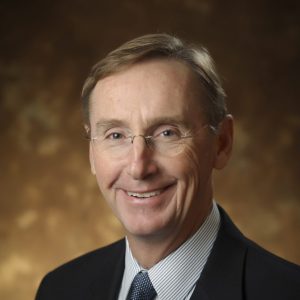 |
A. Wesley Burks, M.D. is Dean of the UNC School of Medicine, Vice Chancellor for Medical Affairs, and CEO of UNC Health Care.
Dr. Burks has spent more than 30 years taking care of patients, conducting research, helping to educate trainees, and leading institutions. He joined UNC-Chapel Hill in 2011 as physician-in-chief of the North Carolina Children’s Hospital and was named chair of the department of pediatrics in 2012, as well as the Curnen Distinguished Professor of Pediatrics. In 2015, he was named executive dean of the UNC School of Medicine, during which he oversaw the school’s focus on rural health initiatives, diversity in admissions, and primary care education, which is now ranked first in the country. Dr. Burks also leads a research team focusing on identifying the molecular signatures of allergens in specific foods, such as peanuts, to gain a better understanding of why some people have adverse reactions. Dr. Burks and colleagues lead several immunotherapy clinical studies, and his initial work on peanut allergies is cited as the basis for potential peanut allergy treatment regimens currently under FDA review. Dr. Burks is a past chair and member of the NIH Hypersensitivity, Autoimmune, and Immune-mediated Diseases study section and is Past President of the American Academy of Allergy, Asthma and Immunology. He graduated from the University of Central Arkansas and then the University of Arkansas for Medical Sciences. He completed a pediatric residency at the Arkansas Children’s Hospital and a fellowship in allergy and immunology at Duke University Medical Center. He served on the faculty at the University of Arkansas for Medical Sciences and Arkansas Children’s Hospital and Duke University Medical Center before joining the UNC School of Medicine. |
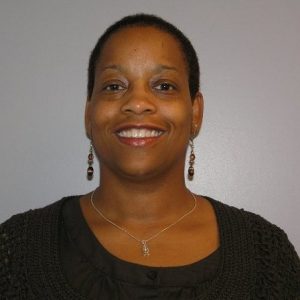 |
Lydia Boyd Campbell, M.D., MPH, FACOEM, has extensive experience in the areas of disability management of both, work related and non-work related illness, occupational health and safety, wellness and health promotion. In addition, Dr. Campbell has been involved in health benefits program design and administration, and was instrumental in the design and implementation of IBM’s family friendly programs and innovative milk delivery program for working, traveling mothers. Dr. Campbell has particular interest in the global impact of mental health disability on worker health and productivity, emergency preparedness and business continuity, and in promoting employee wellness as a strategic imperative to enhancing corporate performance.
Dr. Campbell is trained in internal medicine and occupational and environmental medicine and is a fellow of the American College of Occupational and Environmental Medicine. She received her medical degree from the Morehouse School of Medicine in Atlanta, GA and completed a five year joint residency in internal medicine and occupational and environmental medicine through Columbia University and Morristown Memorial Hospital in Morristown, NJ. Dr. Campbell holds a masters degree in public health from Columbia University School of Public Health in New York City. Dr. Campbell is married to Eddie Campbell, a registered nurse and they are parents of four adult children. In her spare time, Dr. Campbell enjoys travelling, martial arts, and spending time with her family.
|
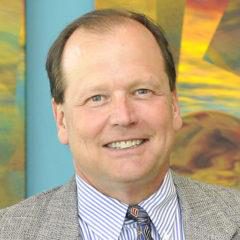 |
William S. Carver II is currently serving as Interim President for the North Carolina Community College System. He has spent over 34 years working at the college level and is passionate about providing the best educational experience for students. Before serving in his current interim position, Dr. Carver retired from Nash Community College in 2019 after 14 years as President. Dr. Carver earned a BS in Agriculture Economics from North Carolina State University, a Master of Business Administration, and a Doctorate of Higher Education Leadership. Dr. Carver has been active in his community serving on various boards and committees. He was the recipient of the 2019 I.E. Ready Distinguished Leader Award, presented by NC State University’s College of Education. In 2019, he was honored as a recipient of the Order of the Long Leaf Pine. He has also been honored with a SkillsUSA Lifetime Membership. During his career, innovation has been at the forefront of what was important for students. Whether it was implementing new programs, collaborations, or initiating college projects, innovation was a key factor of his leadership. This said, Dr. Carver knows that it takes a team of professionals to ensure that these endeavors are successful. |
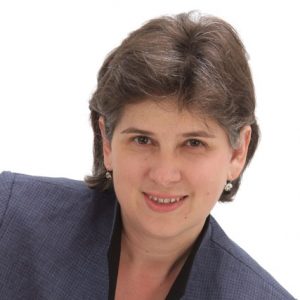 |
Darla K. Deardorff is executive director of the Association of International Education Administrators, as well as a research scholar at Duke University. She is an EAIE trainer who holds a master’s degree in adult education with a focus on second language acquisition and a doctorate degree in education with a focus on international higher education. Darla has lived and taught abroad in Germany, Switzerland and Japan and is a faculty member at several universities around the world including in China, Japan, the US and South Africa as well as having served as faculty at Harvard’s Future of Learning Institute, Harvard’s Global Education Think Tank and the Summer Institute of Intercultural Communication. Founder of the World Council on Intercultural and Global Competence and ICC Global, she has conducted cross-cultural training for universities, companies and nonprofit organizations for over 20 years and is frequently invited to give talks around the world. A recipient of numerous awards including Fulbright, Darla has published widely on international education, intercultural competence and outcomes assessment with eight books and more than 60 articles and book chapters. |
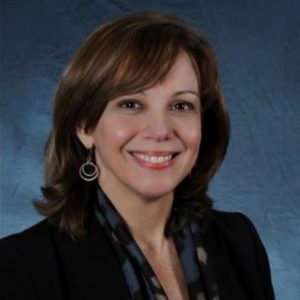 |
Charlé LaMonica is the director of World View. She works with World View’s Partners both on and off campus; forges strategic alliances and collaborations with schools, districts, and community colleges; leads the Global Education Leaders Program, and represents World View in NC and on the national and global stage. Her international career began as an educational outreach and research associate with the NC China Council of the Asia Society. Within the education arena, Charlé has vast experience working with students: she taught English and history in middle and high schools for more than 15 years as well as world history at the community college and university level. Her involvement in international business and education has allowed her to collaborate with those working in Asia, Europe, Latin America, and Africa. Charlé holds a master’s degree from UNC Charlotte and a bachelor’s degree from Boston College. |
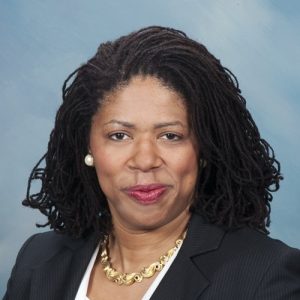 |
Pamela Gibson Senegal is the current president of Piedmont Community College. She previously served as the vice president of economic and community development at Central Carolina Community College. She brings more than 20 years of higher education leadership, business experience and community service to her position. She has traveled to 29 countries, first as the child of a military officer, then as a study abroad participant and most recently as a professional looking at migration patterns and apprenticeship programs. Pamela served as dean of career and technical programs, assistant to the president for Hispanic community outreach and enjoyed teaching at Durham Technical Community College. She holds undergraduate degrees in political science and Spanish, a master’s in public administration and a doctorate in adult and community college education, all from N.C. State University. She also completed a training and development certificate from UNC Charlotte and the American Society for Training and Development. |
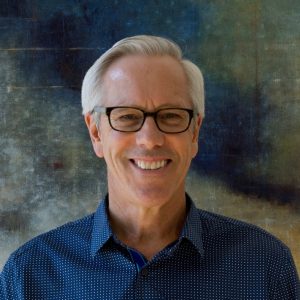 |
Jim Thomas’ work in public health spans more than 35 years and 35 countries. His principal interests are in social forces underlying epidemics, ethical concerns in digital surveillance and the ethical practice of public health in a pandemic. In addition to his many scholarly articles, he was an editor and author of a textbook on epidemiologic methods in the study of infectious diseases and principal author of the initial American Public Health Association’s Code of Ethics. As director of the MEASURE Program, Dr. Thomas is leading a global team that is advancing the capacity of developing countries to monitor their epidemics. In the context of the COVID-19 pandemic, Dr. Thomas is advising government planning groups, speaking and writing on pandemic ethics, and has created an online Pandemic Ethics Dashboard as a resource for policymakers. |
Concurrent Sessions
| Session 1 | |
| Health Literacy: Integrating Strategies and Resources into Curricula | |
| Nandita Mani, Associate University Librarian for Health Sciences and Director of the Health Sciences Library, UNC Libraries
Terri Ottosen, Community Engagement and Health Literacy Librarian, UNC Libraries
|
|
| Engaging to improve health literacy skills is critical to reduce health disparities and improve health outcomes. The global pandemic has exacerbated the problem of finding and acting upon reliable health information and has created an “infodemic.” People with low health literacy may be more hesitant to ask questions of their health care providers, or lack the skills to find, evaluate, and utilize health information online. Promoting health literacy skills is an immediate strategy to reduce health disparities and to assist students in being active, engaged participants in their own health care. In addition, it is vitally important to ensure health messages, both verbal and written, are communicated clearly so that the general public can understand what they need to do in order to achieve better health and make informed decisions about their care. In this session, we will discuss approaches that community college educators can employ when integrating health literacy skills in curricula, methods for evaluating health information using multiple types of information, and reliable and recommended resources for health information seeking. | |
| Session 2 | |
| Supporting Critical Need Allied Health Programs at Community Colleges During the Global Pandemic | |
| Patty Pfeiffer, Vice President for Academic and Student Services, Wayne Community College | |
| The COVID-19 pandemic has created many challenges in higher education, especially for those in allied health programs. Still, we have seen an accelerated demand for allied health professionals due to the current health crisis. Community Colleges can play a critical role in addressing this need. This session will explore the challenges, opportunities, and ways to support allied health programs at community colleges, and in turn, help to produce those critically needed graduates. | |
| Session 3 | |
| Envisioning Health: Leveraging Community Perspectives to Inform Healthcare Provider Training and Reduce Health Disparities | |
| Alex Lightfoot, Assistant Professor, Department of Health Behavior, Director of Community Engagement, Partnership and Technical Assistance, UNC Chapel Hill | |
| North Carolina (NC) has experienced 943% growth in the Latinx population over the last 20 years. Compared to Whites in NC, Latinos face significant healthcare barriers, such as lack of insurance, access to care, and difficulty communicating with medical providers. Such barriers have potential lifelong implications for the health and well-being of Latinx adolescents. This session will discuss a participatory approach that used photography to engage Latinx adolescents in an exploration of “what I wish my doctor knew about my life.” The process generated powerful images and insights into the impact of migration experiences on health and the barriers faced by Latinx youth in health care settings. We will discuss the implications of these insights for the training of healthcare professionals and improving the care and treatment of Latinx adolescents. | |
| Session 4 | |
| Globalizing the Curriculum | |
| Marianne Baernholdt, Professor and Associate Dean for Global Initiatives, School of Nursing, UNC Chapel Hill | |
| This presentation will discuss why it is essential to include global learning into a curriculum. As educators we are responsible for developing students’ global knowledge, attitudes, and skills so they are able to apply global evidence in a local context. Resources and methods to include quality global learning into a curriculum will be discussed. A case example of how the curriculum was globalized in a school of nursing will be presented. | |
Concurrent Session Speakers:
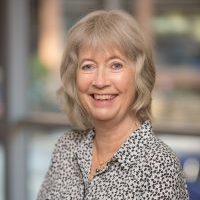 |
Marianne Baernholdt An international scholar, Marianne Baernholdt, PhD, MPH, RN, FAAN, has dedicated her career to teaching and mentoring students and junior faculty in leadership, quality, and safety. She is an experienced primary investigator and co-investigator on several federal grants, and her research focuses on how quality of care is defined and factors affecting quality of care in global rural areas across the healthcare continuum.
Before joining Carolina Nursing as the Associate Dean for Global Initiatives, she served as the Nursing Alumni Endowed Professor at the Virginia Commonwealth University (VCU) School of Nursing. During her time at VCU she was also the founding director of the Langston Center for Quality, Safety, and Innovation — a resource dedicated to providing the health community with education, activities, and resources that foster collaborative, patient-centered, cost-effective health care. Dr. Baernholdt was the Director for Global Initiatives at the University of Virginia School of Nursing before her time at VCU. |
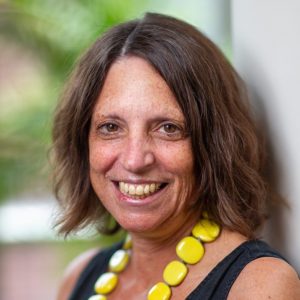 |
Alexandra Lightfoot Alexandra Lightfoot got her start in global education as a teacher at a rural girls’ school in Western Kenya. Her experience there introduced her to the social determinants of health and inspired her interest in examining the intersection of educational inequities and health disparities. She is Assistant Professor in the Department of Health Behavior at the Gillings School of Global Public Health at the University of North Carolina at Chapel Hill (UNC). She also directs the Community Engagement, Partnerships and Technical Assistance Core at the UNC Center for Health Promotion and Disease Prevention, where she provides consultation and technical assistance in community-based participatory research (CBPR) to students, researchers and community-academic partnerships. Her research focuses on adolescent health and well-being and uses participatory approaches, including photovoice, to engage communities, inform intervention development, implementation and evaluation, and bring about community-driven change. In addition to her community-engaged work in North Carolina, she has extensive global experience facilitating cultural immersion and civic engagement opportunities for college students. |
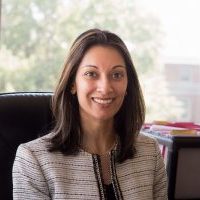 |
Nandita S. Mani Nandita S. Mani PhD, MLIS, is the Associate University Librarian for Health Sciences and Director of the Health Sciences Library. As AUL & Director, Mani oversees one of the nation’s leading health affairs libraries. The UNC Health Sciences Library (HSL) is the primary library for the University’s schools of dentistry, medicine, nursing, pharmacy, and public health. It also serves the UNC Medical Center and the North Carolina Area Health Education Centers (NC AHEC), a statewide program for clinical education and health services. She provides leadership and general administration of the HSL, and outreach to the five Health Affairs schools and the hospital. She participates in university-wide programs and committees and represents the library system regionally, nationally, and internationally. Prior to coming to Carolina, she lead projects related to health literacy and community engagement and worked on curricular transformation projects at the University of Michigan where she lead the development of a 4 year longitudinal multi-disciplinary curricular thread for the School of Medicine, taught information synthesis and evidence-based techniques to graduate students in the health professions schools, served as faculty for the UM Masters of Health Professions Education program, and taught and worked closely with clinical departments, residency programs, and community partners during her tenure at Henry Ford Hospital. Mani served a 10 year term as Managing Editor for Advances in Chronic Kidney Disease, and is currently an Assistant Editor for Consumer Health on the Internet. She has published in the areas of health literacy and global health, information science, and instructional design and technology. Her grants participation spans the areas of chronic kidney disease, technological innovation integration, and online learning. |
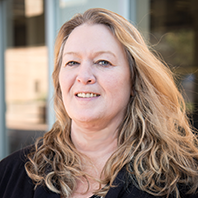 |
Terri Ottosen Terri Ottosen is the Community Engagement and Health Literacy Librarian at the Health Sciences Library at UNC Chapel Hill. She provides community outreach services and instruction on topics like clear health communication, plain language, consumer health resources and patient education.
Terri has an extensive background and expertise in consumer health, patient advocacy and health literacy. Prior to joining the HSL team, she coordinated the consumer health program efforts for the National Network of Libraries of Medicine, the outreach arm of the National Library of Medicine, for a large area of the Southeastern U.S. She has taught numerous classes, both in-person and online, on a wide variety of topics pertaining to consumer health. She has a track-record of passionately advocating for patient empowerment and engagement, and is dedicated to improving patient-physician relationships. She is a knowledgeable health sciences librarian, who has years of experience working with health consumers, health professionals and librarians. |
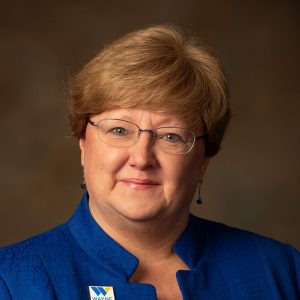 |
Patricia Pfeiffer Patricia Pfeiffer has been employed at Wayne Community College (WCC) since November 1994. During her career at WCC, she has served as a nursing faculty member, Nursing Department Chair, Dean of Allied Health and Public Services, Chief of Staff and Vice President of Institutional Effectiveness, and now serves as the Vice President of Academic and Student Services. Prior to coming to WCC, she worked as a labor and delivery nurse. Before college, Dr. Pfeiffer served in the United States Army as a parachute rigger and paratrooper for six years. She earned her doctorate in higher education and adult learning (EdD) from Walden University. She also has a master’s in administration (MSA) from Central Michigan University, a master’s in nursing education (MSN) from East Carolina University, a bachelor’s degree in nursing (BSN) from East Carolina University, and an associate’s degree in nursing (ADN) from Wayne Community College. |
Program Materials
TED Talk: It’s Time to Bring Global Health Home
https://www.youtube.com/watch?v=6qpaQ05VklE


